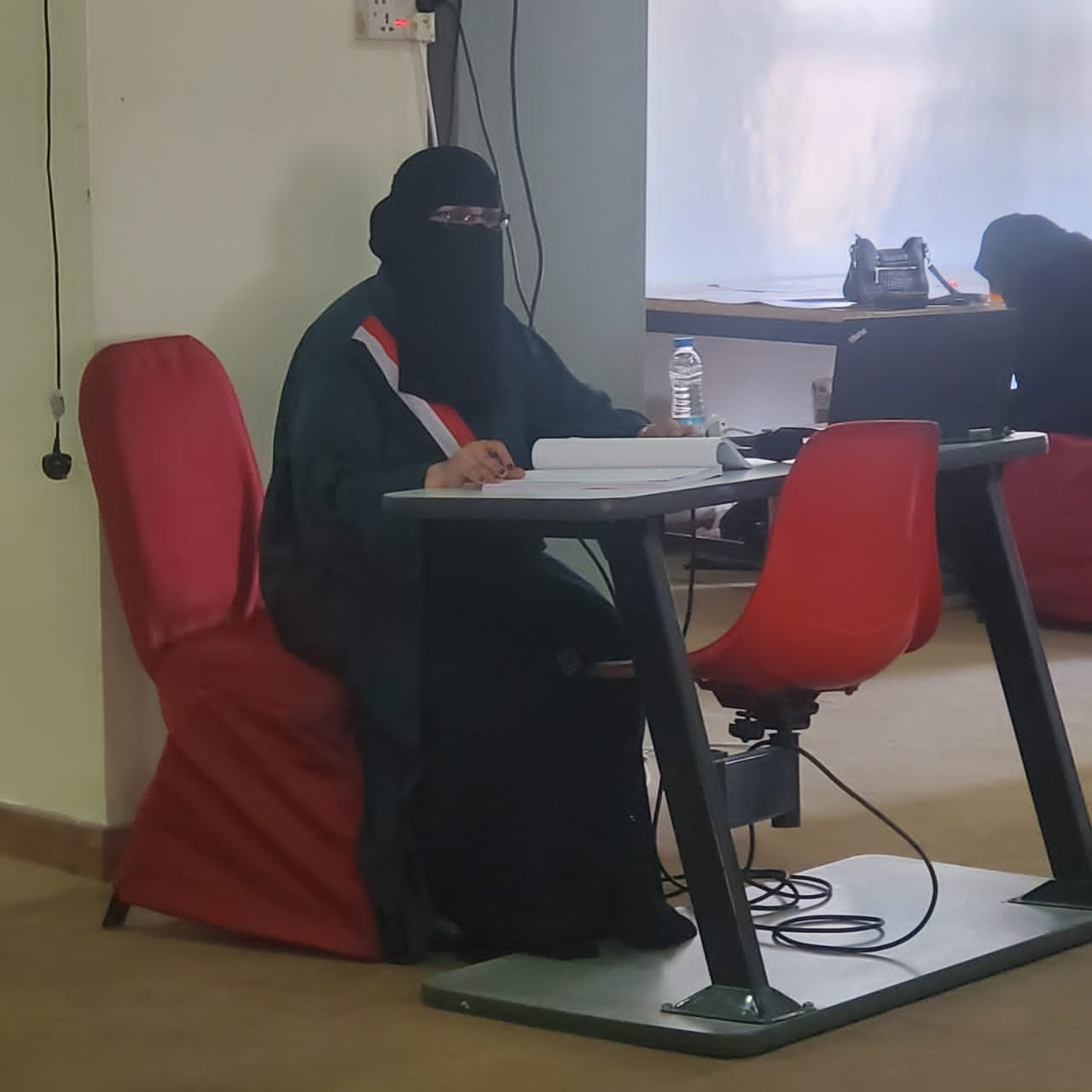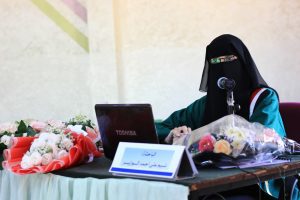Safa’a Mohammed Mohammed Abdalla DARWIESH obtained the Philosophy of Doctorate degree in the major of Medical Microbiology

![]()
Thursday, Safar 25th 1446H, August 29th, 2024, the candidate researcher/
Safa’a Mohammed Mohammed Abdalla DARWIESH
obtained the Philosophy of Doctorate degree in the major of Medical Microbiology from the Faculty of Medicine and Health Sciences, Sanaa University,
for her thesis entitled:
Relation between Biofilm Formation and Fimbriae Virulence Genes in Uropathogenic Klebsiella Pneumonia Isolates in Sana’a City.
The examining committee consisted of:
- Professor Dr. Khaled A. AL-MOYED, Principle Supervisor from Sanaa University Committee Member,
- Professor Dr. Ahmed Mohsen AL-QADASY, External Examiner from University of Hodeidah Head of Committee, and
- Professor Dr. Hassan Abdel-Wahab AL-SHAMAHY, Internal Examiner from Sanaa University Committee Member.
The thesis aims at determining the relation between multi-drug resistance biofilm-forming Klebsiella pneumonia and fimbriae virulence genes isolated from urinary tract infection subjects in Sana’a city, Yemen.
The study comes out with some results, of which: there exists a high rate of urinary tract infections (UTIs), diabetes, catheters, stones and pregnancy groups are the major risk factors for UTIs. There is also a significant correlation between the ability of biofilm production of uropathogenic strains and antibiotic resistance. The biofilm being difficult to treat with antimicrobial agents, there is a very high rate of antibiotic resistance of Klebsiella pneumonia that were isolated. In addition, Quinolones and cephalosporins appeared to be the least active drugs on the studied biofilm producing K. pneumoniae and the slightly sensitivity ones were showed in carbapenems and aminoglycosides. The study ends in revealing a significant relation between multi-drug resistance (MRD) biofilm-producing K. pneumoniae isolated from UTIs subjects and the presence of fimbriae virulence genes (mrkD and fimH). This affirms there is an obvious relation between biofilm formation and fimbriae virulence genes in uropathogenic Klebsiella pneumonia isolates in Sana’a City.
The researcher presents a number of recommendations at the end of this thesis, of which:
– The need for adopting maximum aseptic precautions for reducing urinary tract infections.
– The need for detection of biofilm for all patients presenting with chronic or recurrent urinary tract infections before the introduction of empirical therapy.
– The need for continuous review of antibiogram for tracking change in etiological agents and antimicrobial patterns to help for proper therapy.
Attendees of the session were a number of academics, researchers, students of the major, the researcher’s colleagues and some of family members.
Previous post
Public MA/PhD Viva-Voce Examination of Mr./Ms. … Najib Muhammad Abdulaziz Ali Al-Salami
Next post





